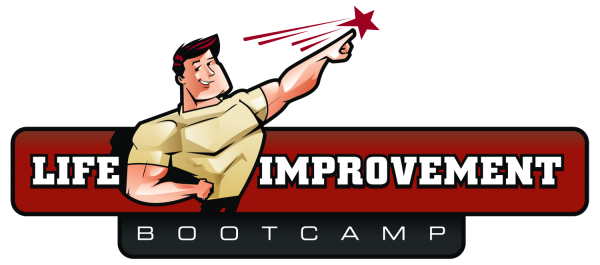
vegetarian health risks
Who would have thought that I would do another blog post on eating vegetarian or having a vegetarian lifestyle, but the reactions I got after my article on having a vegetarian Thanksgiving Day dictates, in my opinion, an extension on the matter concerning vegetarian health risks.
Common sense
I am not a medical doctor and by no means do I want to put forward a medical claim here, nor do I want to condemn other lifestyles as some reactions insinuated.
No matter what your reasons are for consuming a more vegetarian diet, there’s no refusing the obvious health benefits that are gained from lowering the amount of red meat from your diet. On average, vegetarians have lower levels of the blood fats, cholesterol and triglycerides, than extensive meat eaters of like age and social status have. Elevated levels of blood fats are affiliated with an increased risk of heart conditions and their might be some specific things you need to be aware of, (see: vegetarian health risks) but it all boils down to common sense: do not exaggerate in no matter which way you preference swings.
Vegan – Vegetarian
Lacto-ovo vegetarians, those who consume eggs and dairy products, which contain cholesterol-raising saturated fats and cholesterol, have greater cholesterol levels than strict vegans, whom refrain from all animal foods. But even amid lacto-ovo vegetarians cholesterol levels are typically lower than they are with amid meat eaters.
Vegetarian Heart disease
Investigators have discovered that older men who eat meat 6 or more times a week are twice as likely to die of cardio related health issues, as those who abstain from meat. Among middle-aged men, meat eaters were 4 times more likely to suffer a disastrous heart attack, according to the same study.
As for women, who are partly saved by their hormones and generally develop heart disease later in life than men do, the risk of fatal heart disease has been discovered to be lower among the older vegetarians. In a 1982 study of more than ten thousand vegetarians and meat eaters, British investigators found that the more meat consumed, the higher the risk of suffering a fatal heart attack.
Fat or Fat?
Though restricting your meat consumption from your diet is likely to reduce your consumption of heart-damaging fats and cholesterol, replacing large amounts of high-fat dairy products and cholesterol-rich eggs may nullify the advantage. To glean the heart-saving advantages of vegetarianism, consumption of such foods as hard cheese, cream cheese, ice cream and eggs ought to be moderate as well. Overall, the introduction of more veggies, fruits and raw foods will decidedly enhance the advantages of refraining from eating meat for sure.
Vegetarian health risks
Some of the readers addressed the potential risks associated with a vegetarian lifestyle. For sure, special care must be taken when planning a strict vegetarian diet to ensure suitable amounts of necessary nutrients are included daily, but that is the case with every “diet”. Enough variation should have you covered. Choices on nutrients like protein, iron, calcium, zinc and vitamins B-12 and D can be easily integrated into your lifestyle with the proper planning. Here are a few guidelines to consider when you’re planning your weekly shopping trip and co-ordinating your weekly menu.
Plant proteins alone may provide enough of the essential and non-essential amino acids, as long as sources of dietary protein are varied and caloric intake is elevated enough to meet energy needs. Whole grains, legumes, veggies, seeds and nuts all contain both essential and non-essential amino acids. Soy proteins, like soy milk and tofu, have been shown to be equal to proteins of animal sources.
A real vegetarian health risk might be the potential risk of suffering of iron deficiency. Dried fruits and beans, spinach, and brewer’s yeast are all great plant sources of iron. Vitamin B-12 may be found in some fortified breakfast cereals and soy beverages or brewer’s yeast, as well as in vitamin supplementation. Read the labels of other foods cautiously; you may be surprised what food is B-12 fortified. When consumed alongside a fruit or vegetable containing high amounts of ascorbic acid, your body will be more willingly to absorb the required iron, so make sure to team these 2 vital nutrients up as much as possible when meal planning.
Especially as a vegetarian, it’s crucial that you’ve a reliable source of vitamin D in your diet. Exposure to UV-light (sun or tanning bed) stimulates your body’s own vitamin D production. Daytime outside exercise and working in your garden are both excellent alternatives for obtaining this crucial nutrient. Those who don’t have the chance to get out and soak up the sunlight may want to consider adding a Vitamin D supplement to their diet.
Recent studies suggest that vegetarians absorb and retain more calcium from foods than their non-vegetarian counterparts. Veggie greens like spinach, kale and broccoli and some legumes and soya products are great sources of calcium from plants. (Side note on the soy products for male consumers: nowadays more and more studies are saying that men should restrict soy consumption, due to a potential “bad effect” on the prostate at a later age.)
Now, I sincerely hope that I have put all meat lovers their mind at ease, who were concerned about all those vegetarian health risks. Again, using common sense and a medical checkup from time to time will carry you a long way.
As always, have a conscious day!
Filip De Pessemier



Recent Comments